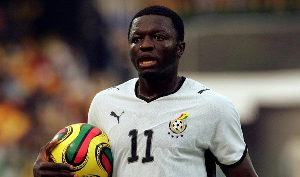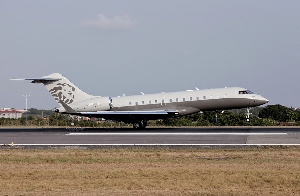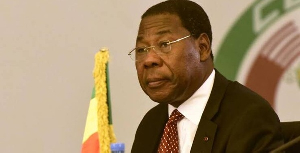Stakeholders at the second annual Summit of the Ministry of Gender, Children and Social Protection (MoGCSP) on Tuesday, pledged their support towards advocacy for mobilising financial resources to address issues of children and the vulnerable.
They admitted that the COVID-19 pandemic had brought to a sharp focus, the plight of children and the vulnerable with increased cases of rape, Gender-Based Violence (GBV), child marriages, defilement, and human trafficking among others.
Hence, there was a need to strengthen the partnership and focus on “Promoting and Protecting the Welfare of the Vulnerable”.
Ms Freda Prempeh, the Deputy Minister of the Gender, Children and Social Protection, at the opening, said 2020, had been an extremely challenging year due to the COVID-19 pandemic.
She said the three-day Summit, would help assess the extent of implementation of its 2020 work plan, and address key emerging issues identified during the implementation of its policy interventions.
The Deputy Minister called for strengthened stakeholder collaboration to enable the Ministry to perform its mandate while encouraging their support to develop further strategies to ensure child safety.
The participants included Ministers of State, Parliamentarians, Development Partners, Civil Society Organisations, Non-Governmental Organisations, Faith-Based Organisations, Media, Academia, Ministries, Departments and Agencies, Metropolitan, Municipal and District Assemblies (MMDAs), Cooperate Bodies, Market Queens and Women, Research Institutions, Students, and Philanthropists.
Dr Agnes Ntibanyurwa, the UNFPA Deputy Country Representative, said the Summit, which provided a unique opportunity for attracting contributions from stakeholders who were working to influence policy and programming for the benefit of the most vulnerable in society, especially women and girls for the needed critical discourse.
She said these conversations and subsequent actions were critical as the world continued to mark the 25th Anniversary of the landmark Beijing Declaration and Platform for Action this year and would accelerate action to meet the 2030 Sustainable Development Goals (SDGs) to protect and promote the rights and choices of all, especially the vulnerable.
Dr Ntibanyurwa, however, said the resilience of its efforts had this year, been tested by the COVID-19 pandemic, which ravaged the world at large and had exacerbated the socio-economic conditions of women and girls globally.
She said as the world sought to build back better, there was the need to develop and implement gender-sensitive responses to tackle existing inequalities faced by women and girls and discrimination of other marginalised groups such as persons with disabilities and those in extreme poverty, and called on stakeholders to invest more time and resources to create and implement robust mechanisms for the nation’s vulnerable populations.
Ms Annie-Claire Dufay, the UNICEF Country Representative, commended the Government of Ghana for the relentless efforts made to curtail the spread of the coronavirus and protect the most vulnerable, saying COVID-19 was “a child rights crisis.”
While children seemed to be less vulnerable to the virus itself, the collateral impact on these younger persons, who were already affected by violence, poverty, disability, or social exclusion, was devastating, and that the consequences posed a significant threat to gains that were being made towards gender equality and the empowerment of women and girls, she said.
Ms Dufay said there was still growing incidences of child labour, streetism, and the fear of many children becoming potential victims of sexual predators owing to the long hours spent on the internet, and increased domestic violence due to the current closure of schools.
She said although many sectors, had worked tirelessly to help the poorest and most vulnerable of the society, many interventions were still delivered in silos due to upstream and downstream bottlenecks, saying “if we are to accelerate poverty reduction and respond to the needs of vulnerable children and families, we must work together.”
She called for the strengthening of referral and coordination across all sectors because the needs of children and their families were complex, concurrent, and required an integrated response.
Mr Mawutor Ablo, the Director for Policy Planning, Monitoring and Evaluation Department, the Gender Ministry, gave a brief overview of the holistic assessment of the Ministry’s 2019-2020 sector performance, saying in spite of the impact of the COVID-19 pandemic, the Ministry made some modest achievements.
He Ministry’s achievements included improvements in LEAP, School Feeding, capitation, Free SHS and Planting for Food and Jobs programmes, as well as youth empowerment with vocational skills for gainful employment, the implementation of the Early Childhood Development Policy while increasing public awareness of children’s issues due to the commemoration of the global days’ events to promote and protect child rights.
The Ministry had also training for 186 District Officers in 26 districts to enhance the capacity of its workforce, closed down two residential homes for non-adherence to standards, but issued new relicenses to five others who met the requirement.
Again, several children had since been reunited with their families after being rescued from traffickers and the street, while the Ministry had developed a programme to support alleged witches, and was working to improve the management of the University of Ghana’s School of Social Work, to run diploma courses to address the human resource shortages of the Ministry.
General News of Wednesday, 21 October 2020
Source: GNA













